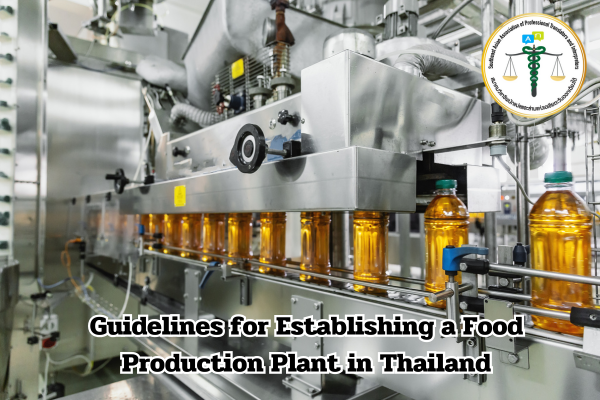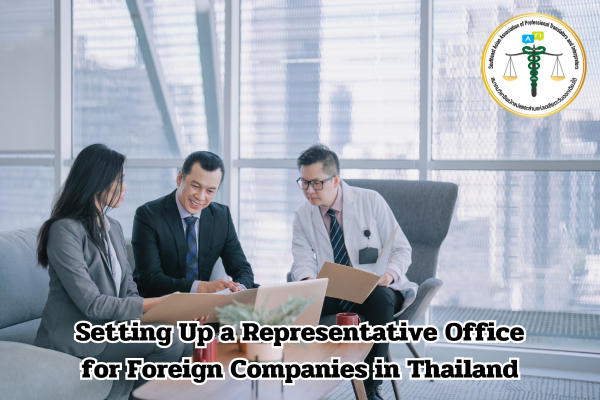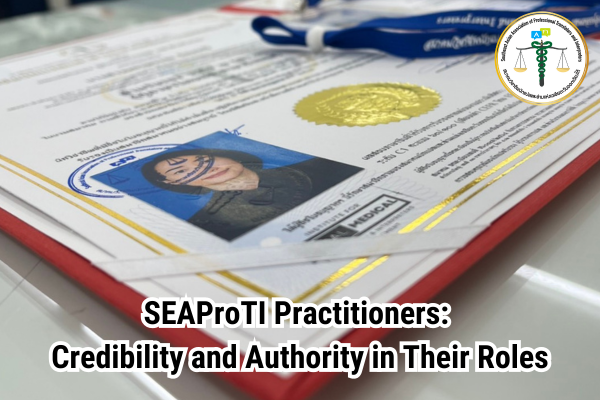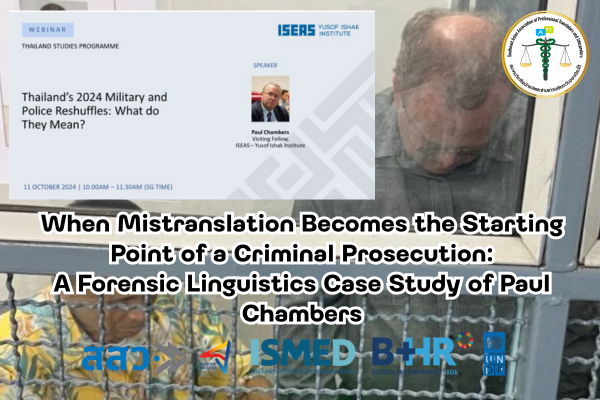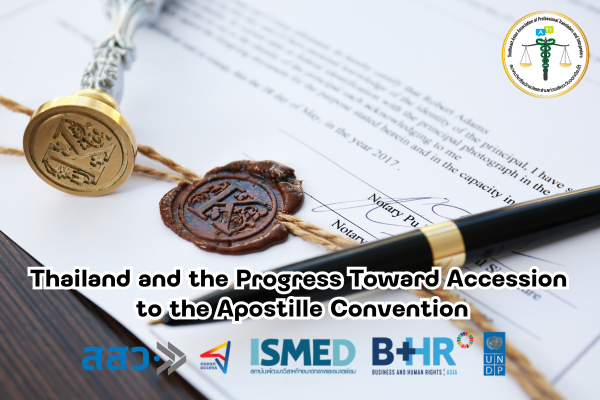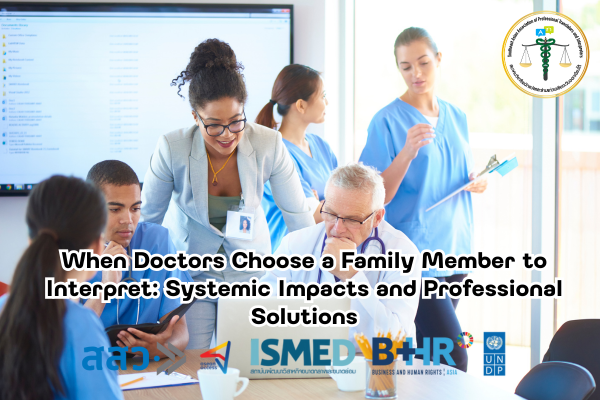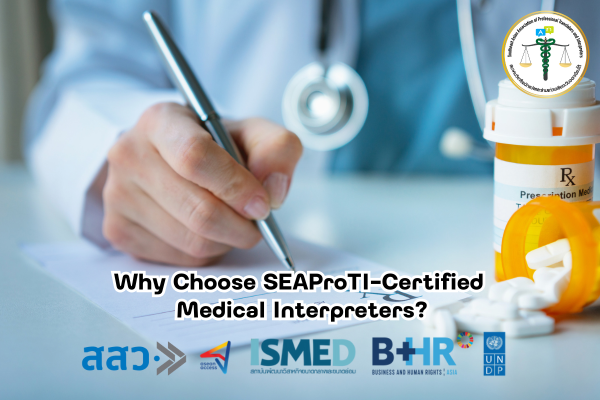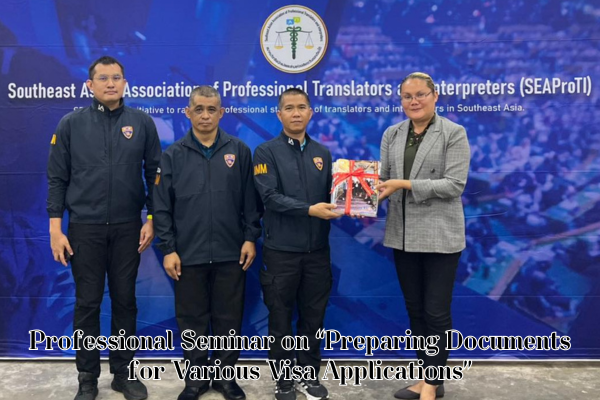Establishing a Food Production Plant in Thailand
Application Process and Required Documents
14 January 2025, Bangkok – Under the Food Act of 1979, no one is allowed to establish a food production plant in Thailand unless they have received a license from the proper authorities. The licensing process involves two main steps: (1) the preparation and submission of the application, and (2) the preparation of the food production site.
The application must be submitted to either the Thai Food and Drug Administration or the Thai Consumer Protection Board. The application consists of several documents, including the application form, identification documents of the company operating the plant, and the master plan of the food production site, which must include details about the sewage system.
Preparing the Food Production Site
The food production site must adhere to several regulations set by the Thai government. These regulations cover:
-
Location of the Site: The site must be located in a safe area that does not pose a risk of contamination, such as near stockyards, areas where animals are raised, factories that produce pollution, or areas with decaying garbage.
-
Quality of the Factory Building: The building must be constructed with high-quality materials, well-lit, and well-ventilated. It should be used solely for food production purposes.
-
Layout of the Production Site: Each step of the production process must have its own designated area, including spaces for storing raw materials, preparing them, mixing, and storing the finished product. Dormitories and bathrooms must be housed in separate buildings.
-
Fuel Handling: The handling of fuel used in the production process must be arranged in a way that prevents fumes from contaminating the food.
-
Water Management: The arrangement of water pipes, disposal of wastewater, and water used in the production process must meet strict regulations.
SEAProTI Role
The Southeast Asia Professional Translators and Interpreters (SEAProTI) plays a crucial role in supporting the establishment of food production plants in Thailand. With experienced certified translators and interpreters, SEAProTI ensures that all legal documents and requirements are accurately translated and understood by both parties—business owners and regulatory authorities.
SEAProTI provides professional translation services that help bridge language barriers and ensure that the entire process, from document preparation to site inspection, complies with Thai law. Additionally, SEAProTI offers expert advice and guidance on how to navigate regulatory frameworks efficiently, making the establishment of food production plants a smooth and compliant process.
About SEAProTI’s certified translators, translation certification providers, and certified interpreters:
The Southeast Asian Association of Professional Translators and Interpreters (SEAProTI) has officially announced the criteria and qualifications for individuals to register as “Certified Translators,” “Translation Certification Providers,” and “Certified Interpreters” under the association’s regulations. These guidelines are detailed in Sections 9 and 10 of the Royal Thai Government Gazette, issued by the Secretariat of the Cabinet under the Office of the Prime Minister of the Kingdom of Thailand, dated July 25, 2024, Volume 141, Part 66 Ng, Page 100.
To read the full publication, visit: the Royal Thai Government Gazette
การจัดตั้งโรงงานผลิตอาหารในประเทศไทย
การยื่นใบสมัครและเอกสารที่ต้องใช้
14 มกราคม 2568, กรุงเทพมหานคร – การยื่นใบสมัครเพื่อขออนุญาตจัดตั้งโรงงานผลิตอาหารต้องทำต่อสำนักงานคณะกรรมการอาหารและยาแห่งประเทศไทย หรือคณะกรรมการคุ้มครองผู้บริโภคแห่งประเทศไทย ซึ่งประกอบไปด้วยเอกสารต่าง ๆ อาทิ แบบฟอร์มใบสมัคร หลักฐานประจำตัวของบริษัท และแผนแม่บทของสถานที่ผลิตอาหาร ซึ่งต้องมีรายละเอียดเกี่ยวกับระบบบำบัดน้ำเสีย
การเตรียมสถานที่ผลิตอาหาร
สถานที่ผลิตอาหารต้องปฏิบัติตามกฎระเบียบของรัฐบาลไทยในหลายด้าน เช่น
- ทำเลที่ตั้งของสถานที่ผลิต: สถานที่ผลิตต้องตั้งอยู่ในพื้นที่ที่ปลอดภัย ไม่อยู่ใกล้กับสถานที่ที่อาจก่อให้เกิดการปนเปื้อน เช่น ฟาร์มสัตว์ โรงงานที่ก่อมลพิษ หรือพื้นที่ที่มีขยะเน่าเสีย
- คุณภาพของอาคารโรงงาน: อาคารโรงงานต้องมีการก่อสร้างที่มีคุณภาพดี เป็นไปตามมาตรฐานที่กำหนด และต้องมีแสงสว่างเพียงพอ มีการระบายอากาศที่ดี
- การจัดวางของสถานที่: ทุกขั้นตอนของกระบวนการผลิตต้องมีพื้นที่เฉพาะ เช่น พื้นที่สำหรับเก็บวัตถุดิบ พื้นที่เตรียมวัตถุดิบ พื้นที่ผสมวัตถุดิบ และพื้นที่สำหรับเก็บผลิตภัณฑ์สำเร็จรูป
การจัดการเชื้อเพลิงและน้ำในกระบวนการผลิต
ในส่วนของเชื้อเพลิงที่ใช้ในกระบวนการผลิต ต้องมีการจัดการอย่างเหมาะสม เพื่อไม่ให้เกิดการปนเปื้อนต่อผลิตภัณฑ์อาหาร เช่น การจัดวางที่ปลอดภัย ป้องกันไม่ให้เกิดไอหรือควันที่อาจก่อให้เกิดผลกระทบต่อคุณภาพของอาหาร นอกจากนี้ น้ำที่ใช้ในกระบวนการผลิตจะต้องมีคุณภาพดีและต้องผ่านการบำบัดน้ำเสียอย่างเหมาะสม เพื่อลดผลกระทบต่อสิ่งแวดล้อมและสุขภาพของผู้บริโภค
บทบาทของ SEAProTI
สมาคมวิชาชีพนักแปลและล่ามแห่งเอเชียตะวันออกเฉียงใต้ (SEAProTI) มีบทบาทสำคัญในการช่วยแปลและให้คำแนะนำเกี่ยวกับกฎหมาย ระเบียบข้อบังคับ และเอกสารที่จำเป็นในการจัดตั้งโรงงานผลิตอาหาร เพื่อให้กระบวนการดำเนินไปอย่างถูกต้องและมีมาตรฐานสูงสุด SEAProTI ยังมีผู้รับรองการแปล และล่ามรับรองที่มีประสบการณ์ ซึ่งช่วยสนับสนุนกระบวนการนี้อย่างมืออาชีพ
การมีผู้รับรองจาก SEAProTI จะช่วยให้เอกสารและข้อกำหนดต่าง ๆ ถูกต้องและสอดคล้องกับกฎหมายไทย ซึ่งทำให้การขออนุญาตและการดำเนินกิจการเป็นไปอย่างมีประสิทธิภาพมากยิ่งขึ้น นอกจากนี้ SEAProTI ยังมีบทบาทในการให้คำปรึกษาด้านการแปลและการสื่อสารทางธุรกิจที่เกี่ยวข้องกับการผลิตอาหาร ทำให้ผู้ประกอบการมั่นใจในกระบวนการที่ดำเนินไปอย่างถูกต้องและได้รับการยอมรับจากหน่วยงานที่เกี่ยวข้อง
เกี่ยวกับนักแปลรับรอง ผู้รับรองการแปล และล่ามรับรองของสมาคมวิชาชีพนักแปลและล่ามแห่งเอเชียตะวันออกเฉียงใต้
สมาคมวิชาชีพนักแปลและล่ามแห่งเอเชียตะวันออกเฉียงใต้ (SEAProTI) ได้ประกาศหลักเกณฑ์และคุณสมบัติผู้ที่ขึ้นทะเบียนเป็น “นักแปลรับรอง (Certified Translators) และผู้รับรองการแปล (Translation Certification Providers) และล่ามรับรอง (Certified Interpreters)” ของสมาคม หมวดที่ 9 และหมวดที่ 10 ในราชกิจจานุเบกษา ของสำนักเลขาธิการคณะรัฐมนตรี ในสำนักนายกรัฐมนตรี แห่งราชอาณาจักรไทย ลงวันที่ 25 ก.ค. 2567 เล่มที่ 141 ตอนที่ 66 ง หน้า 100 อ่านฉบับเต็มได้ที่: นักแปลรับรอง ผู้รับรองการแปล และล่ามรับรอง


